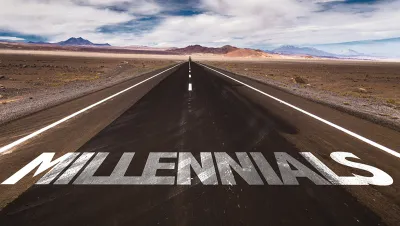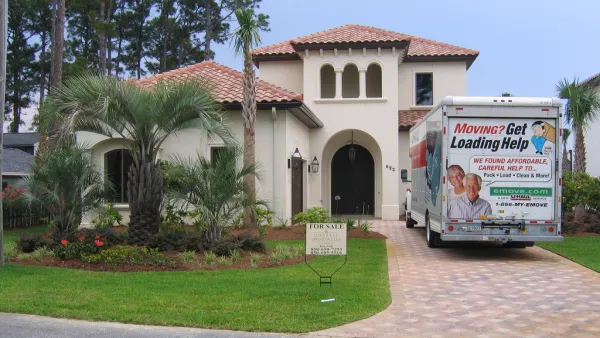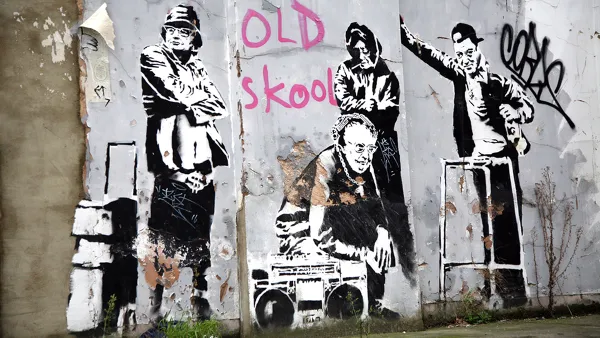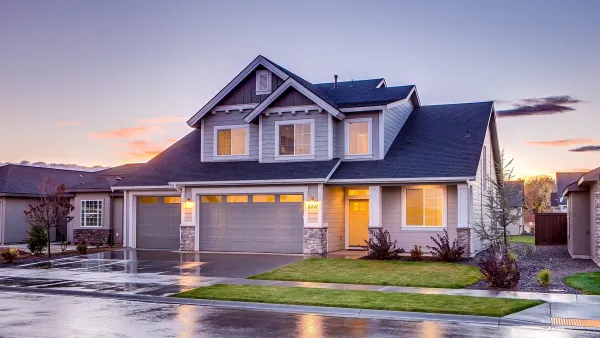Two articles look at millennials, cities, and the future. "Peak Millennial" refers to the numbers of millennials moving to and from cities. Grist's Ben Adler looks at why urban millennials are moving to suburbs, and what can be done to address it.

"Peak Millennial," described here last month, was coined by demographer and urban planner, Dowell Myers, Ph.D. of the University of Southern California. Natalie Delgadillo, editorial fellow at CityLab, writes that according to Myers, "from now on, there will be fewer young people moving into cities, because there will simply be fewer of them period...Additionally, as the largest group of Millennials grows older, many of them will begin to make the shift into suburban family life."
Ben Adler, who writes about climate change, energy, and cities for Grist, focuses on that last part—the urban out-migration of millennials, particularly for those starting families, to the suburbs.
"While it is a statistical fact that more Americans are still moving to the suburbs than to inner cities, it is a mistake to assume that means they all want to do so," writes Adler.
You've probably heard the narrative, backed up by census data: as millennials get older, they start families, and move to the suburbs in search of larger homes (and presumably the back yards), better schools, safer neighborhoods.
The truth is more complicated. Where people end up living is not necessarily where they want to live. If you look more closely, you will see that we’re pushing many people who would prefer walkable urbanism out to the suburbs against their will.
After all, he writes, "[i]f you ask young parents why they have left a star city for its suburbs, or for a cheaper Sun Belt region, you won’t hear most of them say 'because I wanted to shop at strip malls and big box stores' or 'because I love driving everywhere.'"
The other group Adler looks at are baby boomers, many of whom are returning, or hoping to return, to cities as empty nesters. Ironically, that could accelerate the millennial out-migration if cities don't build more housing to accommodate both generational groups.
"Ultimately, all cities should be trying to figure out how they can expand their housing supply, improve their schools, build up their transit systems, and develop other infrastructure to accommodate everyone — the young, the old, and even the middle-aged with families — who wants to live there," concludes Adler.
FULL STORY: Just because some millennials are moving to the ‘burbs doesn’t mean they like it

Analysis: Cybertruck Fatality Rate Far Exceeds That of Ford Pinto
The Tesla Cybertruck was recalled seven times last year.

National Parks Layoffs Will Cause Communities to Lose Billions
Thousands of essential park workers were laid off this week, just before the busy spring break season.

Retro-silient?: America’s First “Eco-burb,” The Woodlands Turns 50
A master-planned community north of Houston offers lessons on green infrastructure and resilient design, but falls short of its founder’s lofty affordability and walkability goals.

Test News Post 1
This is a summary

Analysis: Cybertruck Fatality Rate Far Exceeds That of Ford Pinto
The Tesla Cybertruck was recalled seven times last year.

Test News Headline 46
Test for the image on the front page.
Urban Design for Planners 1: Software Tools
This six-course series explores essential urban design concepts using open source software and equips planners with the tools they need to participate fully in the urban design process.
Planning for Universal Design
Learn the tools for implementing Universal Design in planning regulations.
EMC Planning Group, Inc.
Planetizen
Planetizen
Mpact (formerly Rail~Volution)
Great Falls Development Authority, Inc.
HUDs Office of Policy Development and Research
NYU Wagner Graduate School of Public Service




























